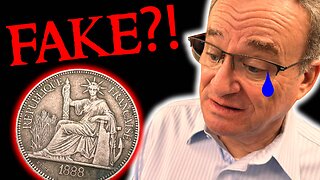Premium Only Content

A Long December Round Here Mr Jones Counting Crows
A Long December Album: Recovering The Satellites (1996)
Round Here Album: August And Everything After (1993)
Mr. Jones Album: August And Everything After (1993)
by Counting Crows
During the taping of a VH1 Storytellers performance, lead singer Adam Duritz talked about A Long December: "In the middle of December of '95 my friend Jennifer got run over by a car, just creamed. And I spent that whole month, while we were just beginning the record and most of January and February in the hospital. Each morning and early afternoon then I'd go to the studio, the house where we were recording, and we'd play all afternoon and all night.
It was a very weird time because there is a lot of stress, not that it's a big deal being a second album, but any album. They're just not that easy to make. It's a very stressful process, especially when you're first starting out. I spent a lot of time in the hospital which is pretty weird. But one day I just left the studio about 2 in the morning, and I went to my friend Samantha and Tracy's house which is Hillside Manor, that's what we call it anyway, it's just a little house and I sat there talking with them. I woke them up, got them out of bed and made them talk to me for a couple hours, then I went home to my house. I wrote this song between about 4 and 6 and then went to the hospital the next day, and came to the house and I played it for the guys before dinner and taught it to them after dinner.
We played it about six or seven times. It was take number six. We just stopped, that was it. We recorded the song, it was done. We all went into the kitchen and had a cold beer, I grabbed Brad our engineer and ran back out about five minutes later, had him play the tape three times, just recorded all the harmonies, and we've never touched it since, that was it. It's a completely live song except for the harmonies.
A Long December's a song about looking back on your life and seeing changes happening, and for once for me, looking forward and thinking, ya know, things are gonna change for the better - 'maybe this year will be better than the last.' And so, like a lot of songs on the end of an album it's not about everything turning out great, but it at least it is about hope... and the possibilities."
Courteney Cox, who was starring in Friends at the time, is the girl in the video (not her first - she was in Bruce Springsteen's video for "Dancing In The Dark" and Toad the Wet Sprocket's "Good Intentions"). She and Adam Duritz met on the set and dated for a while. Duritz, dated Cox' Friends co-star Jennifer Aniston in 1995.
Lawrence Carroll directed the A Long December video, which finds Duritz playing a grand piano in the woods and does some serious longing. Carroll used many of the same elements - words scrawled on walls, cutaways to pretty girl looking plaintive - in the Collective Soul video for "Precious Declaration."
"[Round Here] is a song about me," lead singer Adam Duritz said of this song on Counting Crows VH1 Storytellers appearance. Said Duritz: "The song begins with a guy walking out the front door of his house and leaving behind this woman. But the more he begins to leave people behind in his life, the more he feels like he's leaving leaving himself behind as well, and the less substantial he feels about himself. That's sort of what the song's about: even as he disappears from the lives of people, he's disappearing more and more from his own life."
Round Here dates back to Adam Duritz' days in a band called the Himalayans, which he joined when he was a student at the University of California. That band - guitarist Dan Jewett, bass player Dave Janusko and drummer Chris Roldan - wrote the music for the song, to which Duritz added lyrics. The song became their most popular at concerts, and when Duritz formed Counting Crows, he brought the song with him. With his new bandmates Steve Bowman, David Bryson, Charlie Gillingham and Matt Malley, he worked up a new version of the song that was included on their first album, August And Everything After. Duritz made sure to credit everyone in both bands with writing the song, so "Round Here" has eight different writers listed on the composer credits.
The theme of childhood promises not panning out is one that shows up a lot in Duritz' lyrics. In the chorus of Round Here, he lists some sayings that our parents often say: "Around here we always stand up straight," "Around here we're carving out our names."
Said Duritz: "You're told as a kid that if you do these things, it will add up to something: you'll have a job, you life. And for me, and for the character in the song, they don't add up to anything, it's all a bunch of crap. Your life comes to you or doesn't come to you, but those things didn't really mean anything.
By the end of Round Here, he's so dismayed that he's screaming out that he gets to stay up as late as he wants and nobody makes him wait; the things that are important to a kid - you don't have to go to bed, you don't have to do anything. But they're the sort of things that don't make any difference at all when you're an adult. They're nothing."
At the time, Counting Crows didn't release singles in America, and it wasn't until 1998 that Billboard allowed songs to chart on their Hot 100 that weren't released as singles. As a result, the song is a chart anomaly: a very popular song that never showed up. It did make #31 on the Airplay chart, which was later integrated in the Hot 100. The group didn't release singles so listeners would be compelled to buy the albums - a far more lucrative purchase, and arguably a more complete listening experience.
The band often plays extended versions of Round Here at concerts, which can be heard on the 10 minute performance on the song on their 2013 live album Echoes of the Outlaw Roadshow. "I think one of the nice things about playing music is a sense that whatever I want to do is okay," Adam Duritz said in a 2013 interview. "As long as I'm really expressing something, then any way I want to express the song, it's fine."
Counting Crows made a video for Round Here, which was directed by Mark Neale, who would later direct The Verve Pipe's video for "The Freshman" and the documentary Faster. It was the second video the band made (following "Mr. Jones"), and the last one they made for the album, since Adam Duritz wanted the band to scale back promotion when they became wildly popular. "I saw people around me putting out records that got a little too big, and that was the end of them," Duritz told us. "I didn't want that for us, so I stopped it."
The album, August And Everything After, was produced by T Bone Burnett, who worked with a lot of rootsy acts like Gillian Welch and Joe Henry. He also produced the Grammy-guzzling 2007 album Raising Sand by Robert Plant and Alison Krauss. Burnett could do pop, though: he helmed the 1996 Wallflowers album Bringing Down The Horse, the one with "Sixth Avenue Heartache" and "One Headlight."
Mr. Jones is a commentary on fame. With the line, "When everybody loves me, I will never be lonely," lead signer Adam Duritz is stating - with more than a touch of sarcasm - that fame will make everything better ("never be lonely" is repeated to drive home the message: This guy is delusional). When it became the first hit for the band, Duritz was suddenly recognized all over America, which he found discomfiting. The newfound notoriety sent him into a prolonged funk; suddenly he found himself singing a song about dreaming of fame when he was quite bitter about it. With the song resonating his troubles, he came to loath singing it. Duritz stopped writing for over a year, and the Counting Crows second album, Recovering the Satellites, wasn't released until three years after their debut.
Looking back on Mr. Jones in a 2013 interview with Adam Duritz, he explained that even though it is foolish to think that the adulation of fame will solve your problems, it's hard to resist. Said Duritz: "You're supposed to see through that guy: 'When everybody loves me, I'll never be lonely.' You're supposed to know that's not true. For one thing, there's no such thing as 'everybody loves me.' Nobody knows you in that case. So I knew that wasn't going to happen that way. But you still want it: you want life to be easier, you want to be a rock star so it's easier to talk to a girl. It's the same crazy person sitting there with the girl later, though. So it doesn't fix things."
"Mr. Jones" is Marty Jones, a friend of lead singer Adam Duritz. Before Duritz joined Counting Crows, they were in a band together called The Himalayans.
Mr. Jones was written by lead singer Adam Duritz and guitarist David Bryson (the other three band members also got composer credits). On an episode of VH1's Storytellers, Adam explained: "It's really a song about my friend Marty and I. We went out one night to watch his dad play, his dad was a Flamenco guitar player who lived in Spain (David Serva), and he was in San Francisco in the mission playing with his old Flamenco troupe. And after the gig we all went to this bar called the New Amsterdam in San Francisco on Columbus and we got completely drunk. And Marty and I sat at the bar staring at these two girls, wishing there was some way we could go talk to them, but we were too shy. We kept joking with each other that if we were big rock stars instead of such loser, low-budget musicians, this would be easy. I went home that night and I wrote a song about it. I joke about what it's about, that story. But it's really a song about all the dreams and all the things that make you want to go into doing whatever it is that seizes your heart, whether it's being a rock star or being a doctor or whatever. Those things run from 'all this stuff I have pent up inside of me' to 'I want to meet girls because I'm tired of not being able to.' It is a lot of those things, it's about all those dreams, but it's also kind of cautionary because it's about how misguided you may be about some of those things and how hollow they may be too. Like the character in the song keeps saying, 'When everybody loves me I will never be lonely,' and you're supposed to know that that's not the way it's gonna be. I knew that even then. And this is a song about my dreams."
Duritz later revealed that the guy at the bar who was getting the girls was Kenney Dale Johnson, who was Chris Isaak's drummer.
A lot of people thought "Mr. Jones" was a reference to a character in the Bob Dylan song "Ballad of a Thin Man." Dylan is mentioned the line "I want to be Bob Dylan, Mr. Jones wishes he were someone just a little more funky."
The Beatles did mention Bob Dylan's character in their song "Yer Blues." The line is "Feel so suicidal, just like Dylan's Mr. Jones."
Adam Duritz explained: "This is a song that has been misinterpreted greatly, to say the least. I think people too often look for symbolism in songs when they're simpler than they seem. This, in particular, is much simpler than it must seem to a lot of people. I have heard everything from it being about some ancient blues man who taught me to play music, which is completely ridiculous, but like somebody's movie fantasy. I've also heard it's about my dick, which is even more ridiculous. When we did the interview for Rolling Stone, I walked with David Wilde into the Musee d'Orsay in Paris one day and the first thing that happened was these two kids ran up to us and said, 'Hey! You're the guy from Counting Crows, right?' And I said, 'yeah.' And he said, 'Is Mr. Jones about your dick?' I wanted to kill the guy because I knew where that was going to end up, which is the first paragraph of the article in Rolling Stone."
"Mr. Jones" was the first single released by Counting Crows and also their biggest hit. The band's name refers to a phrase "Counting Crows" which means pointless, as in, "That is about as pointless as counting crows."
All the band members are huge fans of the group Big Star. When performing Mr. Jones on Saturday Night Live, Duritz changed the line "I Wanna be Bob Dylan" to "I Wanna Be Alex Chilton." Alex Chilton is the frontman for Big Star, and "Alex Chilton" was the name of the song by The Replacements. In the Replacements song they referred to him as "An invisible man with a very visible voice."
Mr. Jones refers to a dancing woman named Maria: "Cut up Maria, show me one of them Spanish dances." This character appears in many of their songs. She is the main subject of their second single, "Round Here": "Maria says she's dying, through the front door I see her crying," and "Maria came from Nashville with a suitcase in her hand." In "Mrs. Potter's Lullabye," Duritz sings, "There's a piece of Maria in every song that I sing." She is also mentioned on the background writing on the cover of August And Everything After. The identity of Maria has never been revealed, which leads many to believe that she is not a real person, but a symbol for loneliness, desire, or something similar.
Like several big hits of the mid-'90s, Mr. Jones was not released as a single in America, which kept it off the Billboard Hot 100 chart, but meant that fans would have to purchase the entire album to hear it. The ploy worked, with sales of August And Everything After topping 7 million. The song reached #5 on Billboard's Airplay chart, which was integrated into the Hot 100 in 1998. Other hit songs of the era that weren't released as singles include "Don't Speak" by No Doubt and "Torn" by Natalie Imbruglia.
Duritz was accused of lifting the "sha-la-la-la-la" from Van Morrison's classic Brown Eyed Girl, which is far from the truth, he told Entertainment Weekly. "I've gotten a lot of this flack," he said. "I threw one 'sha la la' in as a joke on the record. The next thing I know I'm the second coming of the Belfast Cowboy [a Morrison nickname]. I don't get it. I can see where I learned from his singing. [But] all these other writers jump on it as an easy reference point."
T Bone Burnett produced the August And Everything After album. He released his own album called The Criminal Under My Own Hat the previous year, but then focused on production work for other artists. His next projects were albums for Bruce Cockburn and Sam Phillips (his wife at the time).
In the 1990 census, Jones was the fourth most popular last name, but it's far more musical than the top three: Smith, Johnson, and Williams. None of those have appeared in the titles to any classic songs, but in addition to "Mr. Jones," there's "Me And Mrs. Jones" (Billy Paul), "Casey Jones" (Grateful Dead), and "Crackity Jones" (Pixies). The name has a nice ring to it that fits well in a lyric. Ergo... I rock.
-
 56:45
56:45
VSiNLive
5 hours ago $4.64 earnedFollow the Money with Mitch Moss & Pauly Howard | Hour 1
51.6K2 -
 52:44
52:44
Candace Show Podcast
5 hours agoMy Conversation with Only Fans Model Lilly Phillips | Candace Ep 122
63K239 -
 UPCOMING
UPCOMING
tacetmort3m
5 hours ago🔴 LIVE - RELIC HUNTING CONTINUES - INDIANA JONES AND THE GREAT CIRCLE - PART 5
30.2K -
 26:52
26:52
Silver Dragons
4 hours agoCoin Appraisal GONE WRONG - Can I Finally Fool the Coin Experts?
23.5K2 -
 UPCOMING
UPCOMING
Bare Knuckle Fighting Championship
10 hours agoBKFC on DAZN HOLLYWOOD WARREN vs RICHMAN WEIGH IN
16K -
 6:49:16
6:49:16
StoneMountain64
8 hours agoNew PISTOL meta is here?
28.3K1 -
 20:58
20:58
Goose Pimples
10 hours ago7 Ghost Videos SO SCARY You’ll Want a Priest on Speed Dial
16K3 -
 2:24:59
2:24:59
The Nerd Realm
8 hours ago $2.61 earnedHollow Knight Voidheart Edition #09 | Nerd Realm Playthrough
33.9K2 -
 1:21:14
1:21:14
Awaken With JP
9 hours agoDrones are for Dummies - LIES Ep 70
115K54 -
 1:47:29
1:47:29
vivafrei
8 hours agoJustin Trudeau Regime ON THE VERGE OF COLLAPSE! And Some More Fun Law Stuffs! Viva Frei
88K68